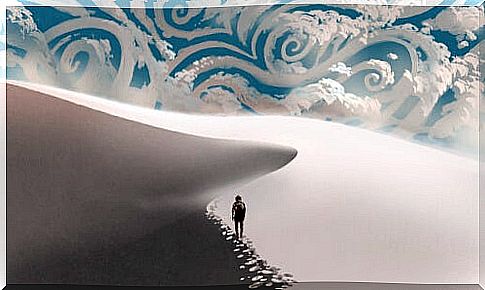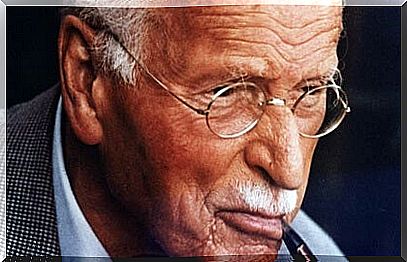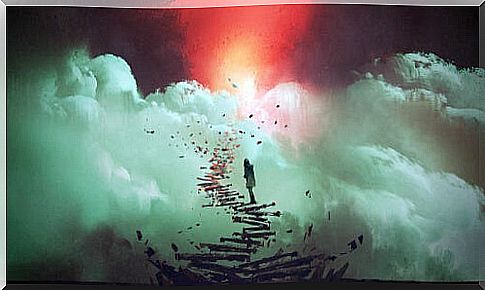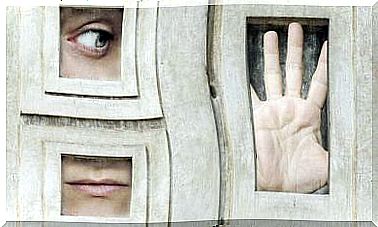The Fundamental Question About Life, According To Jung

In the 20th century, concern for the meaning of life transcended the borders of art, literature or intellectual circles. The gradual decline in absolute values, disappointment with human cruelty, and the lack of stable references fueled the need for an answer. For his part, the Swiss psychiatrist Carl Jung captured this general concern and launched a hypothesis to identify that fundamental question about life whose answer was capable of giving meaning to existence.
For Jung, what was decisive was our sense of transcendence. In other words, he believed that each person needs to feel that their life has a meaning , which goes beyond the immediate. That what he does in the world reaches an echo, an impact on reality. In addition, he affirmed that when life is perceived simply as a sum of moments, with no greater direction than small objectives of little relevance, existential anguish appears. The feeling that everything is meaningless.
Before modernity, religions provided a sense of transcendence to life. The existence of people did not end with their death, but extended into another form of spiritual life, in which everything that had been done was evaluated and rewarded or punished. Thus, with the gradual fall of religious beliefs, the human being was left naked in front of reality. That was beginning to be seen in Jung’s time and that is why he insisted on shaping that fundamental question about life.

The fundamental question about life
According to Carl Jung, the fundamental question about life is this: is the existence of a particular person related to something infinite? Without realizing it, most of us seek to establish that connection with the infinite in our existence. We are not always aware of it, but we do it through religious activity, work, convictions, etc.
The infinite is a set or series with an end or unknown frontiers. Human life ends with death. But we all know that, beyond the death of each one of us, there are realities that transcend us. They were there before we were born and will still be there after our individual disappearance.
Religion has been one of the most natural ways of establishing that contact with the infinite. Belief in a God answers the fundamental question of life. For non-believers or for whom that God does not have a determining presence, things become more complex. The infinite is then sought through one’s own descent; children prolong life. It is also possible that it is a question of finding a certain framework, such as work or social.

The importance of the sense of transcendence
Since the dawn of history, man has wanted to establish that contact with the infinite. Either out of fear, because of the impossibility of assimilating the idea of death or as a means of consolidating an authority that all human beings should obey. From very early times, love also became the cornerstone that gave an answer to that fundamental question of life.
However, the human being discovered that if the object of his love was something or someone outdated and limited, that feeling was doomed to generate suffering. To the extent that the object of love has an end, the sense of transcendence is doomed to die, as a consequence of irremediable loss. That is why man created gods everywhere and loved them. These did not die; fate could not deprive us of his company. In this way, a link with the infinite was established.
Later, and with the development of science and the arts, for many the concept of God took a back seat. Precisely, the sciences and the arts became a new “infinity” that gave transcendence to the life of a person.
The importance of the fundamental question about life and the sense of transcendence is that they bestow a form of bliss that cannot be achieved in any other way. This was expressed by the philosopher Spinoza, in a very lucid way. In this regard he said: ” All our happiness or unhappiness depends only on the quality of the object on which we fix our love […] But love towards an eternal and infinite object feeds the mind with a pure joy without traces of sadness .”









